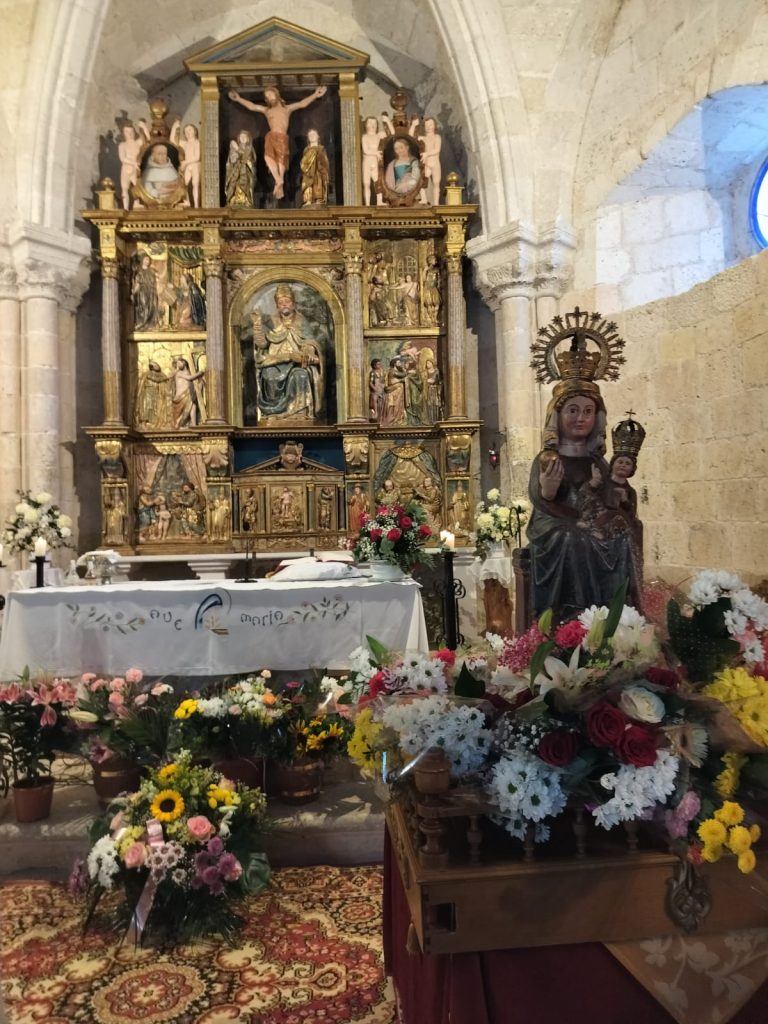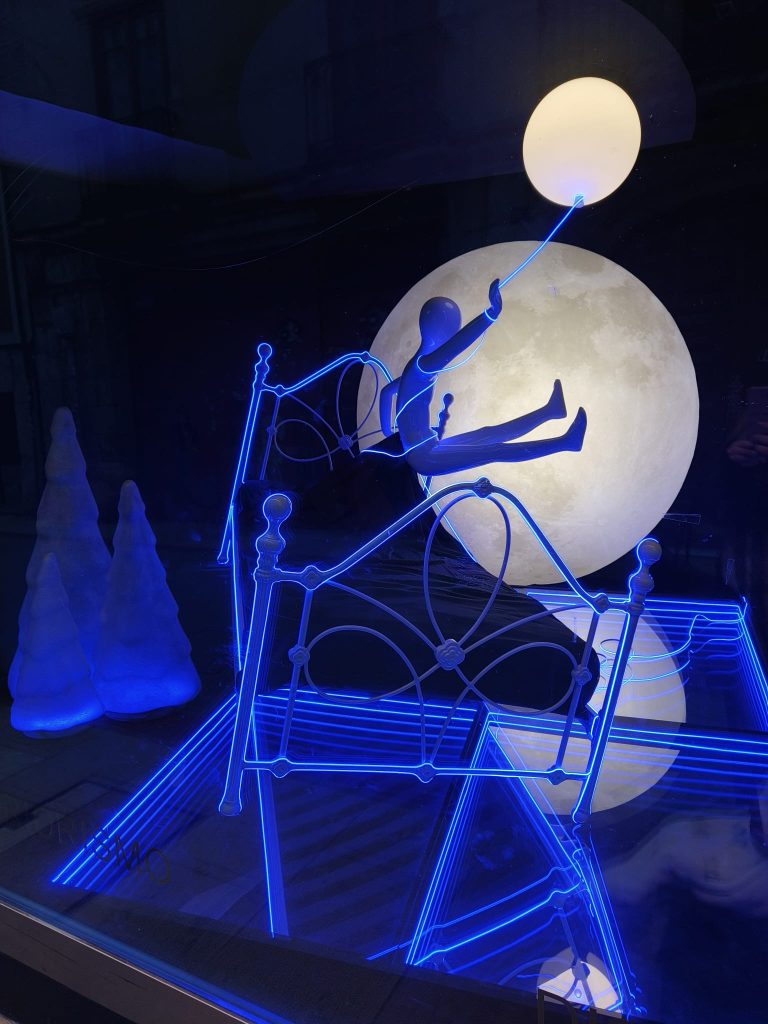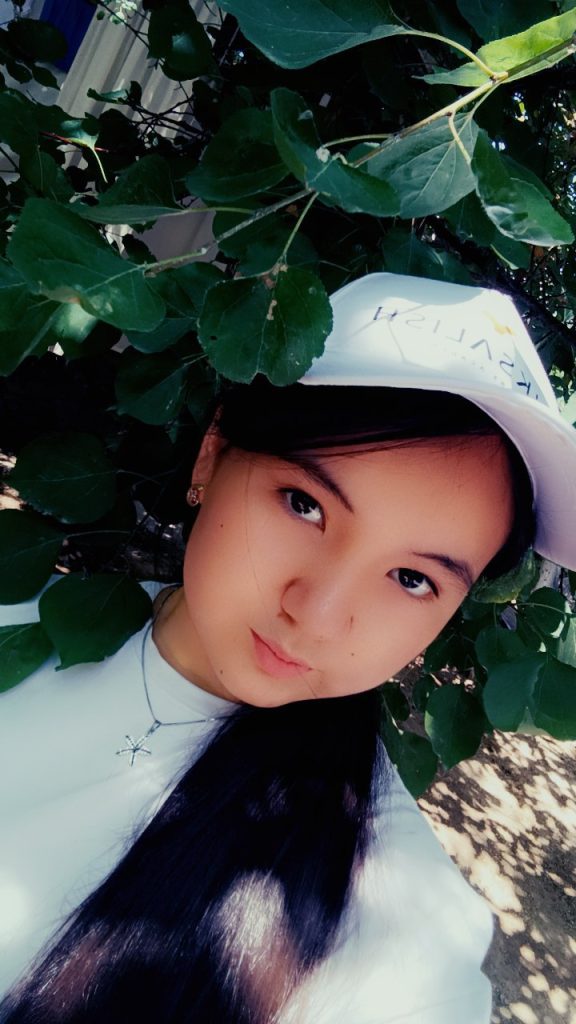Square One
April
After Amy was violently raped, she had moments where she lost all touch with reality. The assault happened after her shift at the tavern ended and she was walking home, just two blocks away. The men seized her almost in front of her own apartment, roughly bundling her into the van they had parked alongside the curb. She started to shout, until one of them brandished a huge folding knife and held it to Amy’s throat. She instantly ceased struggling and allowed herself to be blindfolded, bound and gagged. The men wore ski masks, just like in a movie, she thought. That was just the beginning of the nightmare.
14 Months Later
Present Day
“What can I get you?” asked Amy, wiping a spill off the bar and addressing a new arrival.
“Whatcha got, hot pants?” he cracked wise, with a wide, gap-toothed smile.
She narrowed her eyes at him. “Anything in the cooler, and anything on the shelf — and that’s it,” she replied in an utterly dead voice, indicating the bottled libations arrayed on the back bar with a sweep of her arm.
The man, more subdued now, said, “Draft.” He’d heard before about this joyless bitch.
She served him, moved onto the next bar patron. Since the assault, more than a year before, Amy was forever attempting to decipher what was said to her, looking for a double meaning to or taking offense at an otherwise innocent remark. When she was raped, the men had spoken not a word to her, throughout the two-hour ordeal. So it wasn’t like she could catch an accent or detect an idiom or recognize a voice. She often wondered, were her assailants among the regular customers of Coswego’s, the tavern where she’d worked for six years? She regularly served men in their cups, both social drinkers as well as hardened alcoholics. But, she remembered, neither of the men who attacked her had been intoxicated. The only thing she could remember detecting was the acrid smell of hashish. The guys were both stoned, she thought. They had been very purposeful, almost workmanlike in what they did. It wasn’t as if they had been driven by lust. But then, her rape crisis counselor had told her that rape was not about lust, but about power. She hadn’t known that — before.
Amy had been standing behind the bar for several minutes, lost in the wretched memories of last year, when she heard the tapping of a beer glass on the bar. She looked up, saw Stan, one of her most engaging regulars. She moved down to where he stood. “Help you, handsome?” she asked. Stan was an old friend.
“Glass ‘a Bud, darlin’,” said Stan with a grin. “What, was you asleep back there?” he teased. Stan, a Black man, at six feet, two inches tall and 220 pounds, was a formidable presence. She felt safer when he was around.
“No,” she said. “Just….thinking.”
Stan’s face immediately showed contrition. He understood some of what Amy had gone through months before. She had even confided some of the less lurid details of the assault to him. At one point, before entering therapy, she’d had to talk about it to somebody, if only to a close friend. He had subsequently driven her to several of her counseling sessions. Amy didn’t drive.
“You got another session comin’ up, darlin’? Stan asked.
Amy shook her head no. “Nuh uh, that’s all over. Thanks, though.” Stan nodded, sipped his beer.
In a corner, two men sat round a table, getting soused. When they raised their voices, Amy glanced at them and noticed that they were regarding her lecherously and laughing. Were they laughing at her? she wondered. Could they have been the assailants who had used her, humiliated her, beaten her? She stared darkly at the men and suddenly they became subdued. Amy knew she was gaining a reputation for being a bitch-on-wheels; the reason for her transformation was not generally understood. And she meant to keep it that way. Looking away from the table, she took Stan’s empty schooner and refilled it, set it before him again. She caught her reflection in the mirror behind the bar.
Amy was in her early thirties, healthy, with no really bad habits and was, she had often been told, a very attractive woman. So it was natural for her to attract the attention of potential paramours. But, ever since what she considered “the incident,” she had summarily rejected all suggestions of romantic closeness. When she was dealing with men on the job, she would feel suddenly vulnerable, under scrutiny, even laughed at or sized up. After the rape, Amy faulted herself for her tank tops and tight jeans and eye shadow and all the rest. But the rape counselor, again, had dissuaded her from self-blame.
“An assault victim,” she told her, “does not solicit the harm she receives. There is simply a small segment of male society who are treacherous, misogynistic, and whose behavior is unconscionable. They glamourize rape with ‘she wanted it’ or ‘she asked for it.’ Amy, it was not your fault.”
“Get your number, girlfriend?” asked Hogan, a 50-ish man stumbling to the bar for his umpteenth bottle of Coors.
“I’m seeing someone, Hogan,” she told him with a smooth lie. Not that it made a difference, but Hogan was married to a long-suffering wife and had a houseful of kids.
He made a pistol with his fingers and shot at her, winked, and went back to where he was smooth-talking yet another female. Amy just shook her head.
Throughout her life, Amy had always handled relationships well, she thought, but now she felt at a loss. She continued to be hit on, as if nothing had happened. But, something had happened. She would never be the same again. Most of the approaches, she was sure, were made in good faith, but she wasn’t yet ready for closeness, let alone physical inttimacy. Would she ever be? She hoped so. She was so very lonely.
But, that was about to change.
“Hi, pretty lady,” came a deep, resonant voice.
Amy looked up into his eyes and smiled. “Steve!” she said happily. This was nice, she thought. The one male, aside from Stan, who didn’t constantly hit on her. He had asked her out once, almost a year ago, but when she declined the invitation, a short time after the incident, he took a broad hint and didn’t press the issue, the way so many did. Which elevated him in her estimation.
“How are you, Steve?” she asked, walking down the bar to speak to him. Reflecting on her self-imposed isolation, she wished now that he would ask her out again.
It was as if he read her mind. “Picnic,” he said. “City park. You and me,” pointing first to Amy and then to himself. “Saturday?” Saturday was her day off. He remembered.
In an instant, Amy made up her mind. “It’s a date,” she agreed, smiling again. They talked casually for several minutes, before Amy posed a question.
“What do you like for a picnic?” She’d have to cook, she knew.
But he surprised her. “Hey, I invited you; I’ll rustle up the grub.”
Amy glanced at him narrowly. “You?” she asked. “You know how to cook?”
“Well, if I don’t, then I’d better find a new job,” he said with a grin. Then Amy remembered that Steve was a line cook at an upscale restaurant in the city. She gave him a thumbs up.
April
As the heavy-set man shoved her roughly through the sliding door of the van, Amy felt her head smash into the overhead member framing the doorway. He said not a word, but manhandled her. The next thing Amy knew, she fell hard to the floor of the vehicle and opened her mouth to scream. But, the tall, skinny man produced, as if by magic, a long, deadly-looking folding knife, that Amy could see in the light spilling through the window from the streetlamp outside. She had never seen one like it before. She immediately grew quiet. The men both wore ski masks and all Amy could see were their eyes: ugly, harrowing, pale blue eyes.
She was seized around the shoulders and turned face down, where her hands were bound behind her back and then a cloth, smelling of oil, tied across her eyes. Next, a smelly fabric was shoved unceremoniously into her mouth. She gagged.
Present Day
“You alright?” asked Steve, reaching into the wicker basket and turning up what would prove to be delicious treats. His picnic companion had abruptly turned silent and didn’t appear to hear him.
Amy suddenly came to, snapped back from her nightmarish reverie. “Huh?” she asked thickly.
“We were talking, then suddenly you were on Venus. Is something bothering you?” She hesitated. “Do you want to talk?” Steve invited. She shook her head. “Remember, Amy,” he told her. “We’re friends. And that’s what friends do.” She reached out and touched Steve’s knee, and then, thinking better of it, snatched her hand away again. Steve noticed the uneasy gesture.
“Whatta ya’ got to eat?” she asked.
. . . . .
At home a day later, Amy received a phone call from Detective Fitzsimmons, the policeman who had led the investigation into her rape fourteen months before. He asked her to come by in pursuit of the ongoing inquiry.
“But, you told me at the time, that if a suspect wasn’t uncovered in the first forty-eight hours, you’d probably never find the rapist,” Amy pointed out.
“True,” said the cop, “but we nabbed two men in connection with another assault, and we think we just may be able to tie it to your case, as well. These perps are most often repeat offenders, you know.”
“Yes,” said Amy. “I remember your telling me that before.” At length, she agreed to come into the station that afternoon, so the lineup was arranged.
Amy stood back in the shadows with the detective and one other cop, who stood behind a microphone, watching as five men proceeded onto a brightly lighted platform. The second cop barked, “Halt. Turn right. Turn left.” And so forth. A huge transparent screen separated those on stage from the people observing from down front.
“Take your time, Amy,” coaxed the detective, “and look carefully. The men can’t see or hear you.”
“It’s none of them,” she said shortly.
“Are you sure?”
“The men who raped me were white,” she told him. “These men are all Black.”
“Is it possible you’re mistaken….”
“No! They both wore ski masks, but I could see around their eyes and their lips. They were white!”
Fitzsimmons looked disappointed. “Two of these men are rapists, Miss Winters,” he said. “We have evidence against them. They’ll get only five years for the crimes we’ve evidence of. We could wrap up your case and put them away for a long time, if only…”
“Whether they did it to me or not?” she asked incredulously.
The cop lifted his hand and let it fall. “It could easily have been you!” he pointed out.
“No,” she said adamantly
“Well then,” he muttered, “unless we can uncover additional evidence or you can remember more details, I guess we’re back to square one.”
. . . . .
It was nearly 8pm and Amy was preparing for what would be her fourth date in as many weeks with Steve. She felt like she was again a part of the human race, a social creature. And most of all, she wasn’t so terribly lonely anymore. Steve had taken things slow, too. On their second date, when she had balked at his good night kiss, she had felt compelled to clue him in to her state of mind. He accepted her explanation with equanimity; none of that “damaged goods” nonsense she’d heard from women in her group therapy sessions. How could people be so dense, so cruel? she wondered. But, Amy knew that he wouldn’t wait forever. Tonight they were catching a movie, a first-release picture called “Jaws.” When Amy — who saw few movies, since she worked most nights — said she hadn’t heard of it, Steve had rolled his eyes and teased her that it was about a dentist who’d run amok. When she accepted this at face value, he fessed up. She’d punched him in the shoulder.
During one of the movie’s most intense scenes, Amy clutched Steve’s knee for all she was worth and yelped, as did every other patron at the theater. Then, realizing what she’d done, she apologized profusely.
“Sorry,” she said, “I didn’t mean to…”
“That’s okay, Amy, it’s what friends do…”
As the movie progressed, she sat and just thought about what Steve had said.
As they exited the theater, Steve asked her, “Do you want to get a bite?”
“You mean, like on the neck?” she asked playfully; she felt so relaxed with Steve. Then she cursed herself for crossing an invisible boundary. Might he get the wrong idea? she wondered, then told herself, maybe it’s not the wrong idea after all. As they sat before an array of burgers and fries and coleslaw, Amy looked up and into Steve’s eyes. She had made a decision.
“Do you want to kiss me, Steve?”
Without a word, he placed his fingers behind Amy’s neck, leaned forward across the table and brushed her lips with his own. After a brief taste, he leaned in further and made it count.
“Um,” she murmured, surprised at how soft his lips were. She’d thought, before connecting with Steve, that she’d never be kissed again. Being kissed was better, she thought wistfully. He tasted like French fries.
“Get a motel,” growled the ageless waitress, sidling up with a pot of coffee to refill their cups. When they blushed, the old lady grinned.
Pulling apart again, Amy and Steve laughed merrily and returned to their meal.
It was a Sunday, and Coswego’s was alight with the festivities of the weekly open-mic night. The tavern was crowded and despite the heavy attendance, or perhaps because of it, Amy was enjoying herself immensely. Time went by faster when she was busy. A hapless harmonica player was at the mic, and was doing a bad impression of Neil Young. And the clientele was giving him grief for it.
“God, Fuentes,” shouted a voice from the crowd, “you make Bob Dylan sound like Celine Dion!” The crowd roared its agreement.
“Why don’t you play the guitar?” asked another man loudly.
Fuentes stopped playing the harp. “Because, I don’t play the guitar,” he shouted back.
“That hasn’t stopped you before,” came the riposte. Everyone laughed.
After a few more brave souls had mounted the stage, to sing or give a poetry reading and the like, Amy was shocked to see Steve climb the two steps to the performing platform; in his hands was an acoustic guitar.
“This ought to be rich,” shrilled a man up front. Amy frowned at the heckler, but said nothing. She was curious. Did Steve possess some hidden talent, apart from kissing?
Steve tuned up his guitar for a few moments, and then began strumming. Suddenly he broke into song with a rich baritone, in a beautiful rendition of Van Morrison’s Into the Mystic. Following that, even before the tumultuous applause ended, he launched into George Harrison’s Something, and followed that with Neil Young’s Cinnamon Girl. Amy was beside herself; she’d no idea that the man who had sparked a romantic interest in her was so talented. The crowd thought so too: they shouted and cheered and stomped and clapped vociferously. Taking up his instrument, Steve walked rather sheepishly to the bar, where he reconnoitered with Amy.
“That was,” she told him, “amazing!”
“Get that boy a pitcher of beer, darlin’,” said Stan, sitting at the end of the bar and applauding. Steve nodded his thanks and sat down to enjoy the fruits of his labor.
A hot-looking blonde sidled up to Steve, placed her hand provocatively on his shoulder, and asked, “What are you doing later, Jimmy Page?” Steve grinned.
Acting on impulse, Amy figuraively inserted herself between the two and informed the hussy, “He has plans for later, toots!” in a proprietary manner. Raising her eyebrows, the other woman stared inquisitively at Amy, who said, “He’s coming home with me.” The blonde withdrew. Amy looked at Steve. “If you want to.” He smiled his acceptance.
After the bar closed at 2am and the customers had been shooed onto the sidewalk, Steve silently watched as Amy restocked the coolers and the back bar and cleaned the glassware. After finally wiping down the bar, she came around to where he was sitting and placed her arms round his neck. His hands found a comfortable purchase at the small of her back. She leaned in for a kiss.
At Amy’s apartment, she turned the key in the lock, and then pushed the door open. They entered. Amy hadn’t entertained a man here for nearly two years. It felt like it was for the first time. She had been in love with her first beau, some fifteen years ago; she supposed she was in love again. While she knew what she wanted, she was at the same time confused. Would the waking nightmares return? Would she freeze up? Would she disappoint Steve, and herself?
As if reading her mind again, Steve said, “We’ll do this however you want, Amy. No pressure. We don’t even have to make love, we can just hold one another and sleep. That would make me very happy.”
Make love, she thought dreamily. That was light years from the last time she had,,,had sex. What a gentle, caring man. She was sure of it now: she was falling in love with Steve.
It was a seduction scene reminiscent of a noir movie. Steve waited at the door as Amy entered the bedroom and lighted a candle, then turned down the bed. Putting on a favorite recording of love songs by clarinetist Acker Bilk, only then did she summon her lover with a finger. He followed her inside. To the sounds of Stranger on the Shore, they undressed one another, one garment at a time. Then, falling into one another’s arms, they kissed. Spilling onto the bed, Steve insisted on massaging her tired muscles, aching from hours of work. She nearly fell asleep, but was wakened by soft kisses to her neck and shoulders. Turning over, she placed her arms around her lover and they made passionate, erotic love for perhaps eighty hours — or so it seemed to the both of them. Spent, they collapsed and held one another close till morning.
April
Amy was paralyzed, frozen in place, and she was being beaten over every inch of her body. Fists, boots, open hands, punched and kicked and slapped her. The pain was unbearable. Her body was being invaded, penetrated and used. And there was nothing she could do to make it stop. Amy sprang awake, thrashing drunkenly over the surface of her bed. Feeling trapped still, she kicked the bed clothes off her, sat staring at the still dark windows and wondering when the nightmares would end.
. . . . .
“What is it?” whispered Steve, gently touching her arm.
Amy teared up. “I don’t know when it’s ever going to end,” she said, sitting and holding her face in her hands. “When will it end, Steve?” she asked plaintively.
“When you feel you’re loved,” he said softly.
“I feel it now,” she told him.
. . . . .
Amy might have missed it, but for an ugly bar scene weeks later. Last call had already happened, and Amy stood back of the bar, washing the glassware in preparation for closing the tavern. It was nearly closing time and there was a ruckus at a table in the back. Though gambling was strictly forbidden, by both ordinance and bar policy, it was an inevitable occurance at the taverns. Fuentes, the man who played a poor harmonica, suddenly stood up at the table and shouted imprecations at several others, with whom he had been shooting dice.
“You a cheatin’ sonofabitch,” he shouted angrily.
Suddenly, chairs were scraped back over the tile floors and crashed into the adjacent walls.The three men stood, facing off.
“You call me a cheater, Chico?” sneered one of the two.
“I break you’ damn neck, gringo,” snarled Fuentes.
As if by magic, the other man flicked open a huge, malevolent-looking folding knife. Amy, who had watched this drama unfold, froze. She had seen that knife before. It was the most lasting impression from that night, the year before. She knew it instantly. The man who flourished the knife was one of her rapists. She was certain! Fuentes acted furtively to take the knife from the other man, but was cut across the arm and fell to the floor, bleeding.
Amy snatched up the house phone and swiftly dialed 911, then set the receiver back down. In the ensuing melee, most of the other patrons had made for the exits, but for Fuentes and the two dirty gamblers. She peered closely at them, recognized the only thing she had seen of them before: their eyes. It was them, she was positive.
“Hey, hang up that phone, bitch!” shouted the tall, skinny knife wielder.
“Stay where you are, you sonofabitch?” Amy growled, pulling a loaded pistol from her purse under the bar. After the incident, she had purchased the weapon and taken classes on how to use it. “I’m a dead shot,” she cautioned. Was it her imagination, Amy thought, or was the tavern air suddenly redolent with the stench of hashish?
“Hah!” shouted the man, who was obviously drunk. “We’ll do what we should’ve done the last time.” The two assailants slowly moved forward. Amy squeezed off a shot, which struck the man who had spoken in the groin. With a whimper he collapsed to the floor. The other man froze in place.
The telephone began squawking and, keeping her eyes on the miscreants, Amy lifted the receiver to her ear and described the situation at the tavern. She added, “And a message for Detective Fitzsimmons: tell him this is Amy Winters, and that we’re no longer stuck on square one.”







